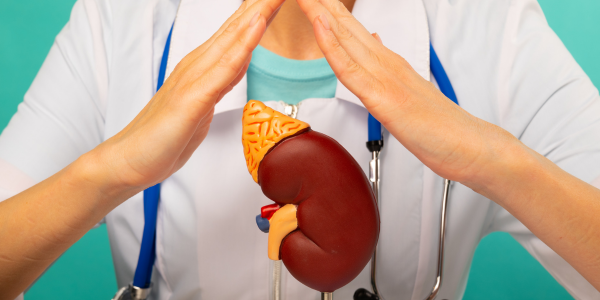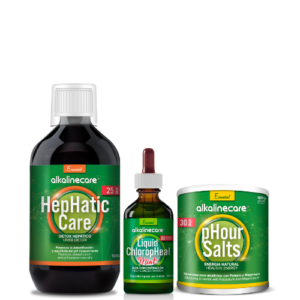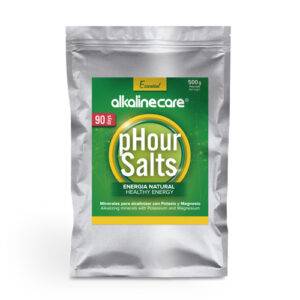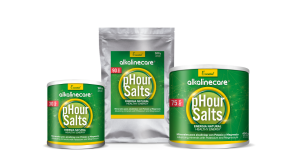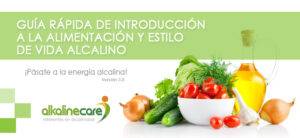In this article, we are goin to discuss the stomach from a different perspective, as there are different scientific approaches about its functioning. Additionally, we will explain the important points to understand how the stomach works according to the pH theory, its physiology, digestion, and how sodium bicarbonate (NaHCO3) and hydrochloric acid (HCL) is created in the stomach lining. We will also explore how the intake of proteins, dairy, and sugar is related to health issues, disease, inflammation and general discomfort. You will also see how the stomach is more than just a digestive organ.
The stomach is more than a digestive organ
How acid/base is generated in the body
The cells in the stomach separate sodium chloride from the blood. Sodium combines with water and carbon dioxide to form the alkaline salt sodium bicarbonate or NaHCO3. The biochemistry is: H2O + CO2 + NaCl = NaHCO3 + HCL. This is why some consider the stomach an alkalizing organ and not simply a digestive organ. According to some scientists, the stomach does not digest the foods or liquids we consume but alkalizes them, let’s see why.
For every molecule of sodium bicarbonate (NaHCO3) generated, a molecule of hydrochloric acid (HCL) is secreted and released into the digestive system, specifically in the stomach. Therefore, HCL is an acidic substance, a waste product of sodium bicarbonate that the stomach has secreted to alkalize the ingested food.
When large amounts of acid enter the stomach (including HCL), acids are withdrawn from the body’s acid/base reserves.
How excessive intake of animal protein affects us
When we eat meat, fish o egg proteins, the stomach begins to manufacture and secrete sodium bicarbonate (NHCO3) to alkalize the acids from the food. This causes a loss of alkaline reserves and an increase in acid or HCL in the stomach. These acids and/or HCL are absorbed by the blood decreasing the pH in the blood plasma. The blood eliminates this increase of gastrointestinal acid by pouring it into the Pishinger spaces (extracellular space).
The Pishinger space (or extracellular space) contains the fluids that bathe and nourish each one of the cells while eliminating acidic waste from them.
After eating meat or dairy, the urine pH becomes more alkaline because an acidic reaction occurs in the body: formation of sulfuric acid, phosphoric acid, nitric acid, uric acid, lactic acid, acetaldehyde, and ethanol. On the other hand, alkaline minerals are formed and eliminated through urine. Additionally, eating meat and cheese results in a double loss of alkaline minerals, which in turn promotes low-grade acidosis, inflammation, and pain.
Low-grade acidosis causes pain, inflammation and disease
The more acidity generated after eating meat, cheese, milk, or ice cream, the more gastrointestinal acids will be absorbed by these collagen fibers. The greater the potential difference between the absorbed acids and the amount of NaHCO3 generated after each meal, alkalizing glands such as the pancreas, gallbladder, pyloric glands, blood, etc., will be more or less alkaline.
Saliva pH indicates alkaline reserves in alkalizing glands, and urine pH is an indication of the pH of the fluids surrounding cells or the Pishinger space.
Blood pH
The blood maintains its pH by pouring gastrointestinal or metabolic acids into the connective tissue or the Pishinger space. The blood provides urine with the same amount of acid it receives from the tissues of the body and the liver to preserve its isoform. A lack of bases (alkaline minerals) is always related to the deterioration of the connective tissue or Pishinger space storage capacity. As long as the bloods isostructure is maintained, the urine (originating from blood) will reflect the acid/base regulation, not in the blood but in the tissues.
When we test the urine pH, we are also testing the tissues pH
Low-grade acidosis is the condition that exists when there are not enough bases in the alkalizing glands as they have been used during the acid neutralization process. These bases (alkaline minerals) are absorbed by collagen fibers. This leads to what is called “compensated” acidosis. This means that the pH of the blood has not changed, however, other body systems have. Therefore, this can lead to “decompensated” acidosis where the blood alkaline reserves are used up and the blood pH is altered. “Decompensated” acidosis can be determined by testing the pH of the blood, urine, and saliva. The decrease in alkaline reserves in the body occurs due to over-proteinization (eating meat and cheese), eating too much protein or because of over-carbonization, having too much sugar.
What happens when the alkaline reserves decrease
The digestion or alkalization cannot proceed without enough alkaline fluids. The liver, pancreas, and stomach have to secrete more acid to create more bases. This can lead to indigestion, nausea, acid reflux, ulcers, and all kinds of stomach problems. All these symptoms are the result of a lack of base in the form of sodium bicarbonate.
The stomach as a contributing organ
Acording to some scientists the stomach is not an organ meant for digestion (as currently taught) but a contributing or depositing organ. Its function is to deposit alkaline juices in the stomach to alkalize the food and the blood that transports them to the alkalizing glands.
There is a daily rhythm in the fluctuations of the bodys fluids. The stored acids are mobilized from the connective tissue and Pishiger spaces while we sleep. These acids reach their maximum concentration in this fluid around 2 in the morning. The acidic content of the urine directly reflects the acidic content of fluid in the Pishinger space. On the other hand, Pishinger spaces become alkaline at the maximum around 2 in the afternoon when more sodium bicarbonate is generated in the parietal cells of the stomach to alkalize the food and drink we have ingested.
If your urine is not alkaline at two in the afternoon, you are definitely in an ACIDIC state and in need of alkaline reserves
The urine pH should be between 6.8 – 8.4, although the ideal is 7.2.
Try with pHour Salts to:
- Neutralice stomach acidity without affecting the hydrochloric acid production.
- Improve digestion.
- Preserve gut micro flora.
- Aid in inflammatory processes.
- Promote proper bowel movements.
The Importance of the pH in the Blood and Urine
The Blood pH is maintained by eliminating acids through urine and the connective tissue. Low-grade acidosis may indicate a lack of alkaline bases in the alkalizing glands, which can affect the overall health.
Acid Excretion Process
The body produces hydrogen ions (H+) that must be excreted to maintain the acid-base balance. This involves the reabsorption of filtered sodium bicarbonate and the excretion of hydrogen ions through the urine. An alkaline diet, rich in green leafy vegetables and alkaline minerals will help replace the lost alkaline bases.
Conclusion
By following an alkaline diet and maintaining our acid-alkaline balance, we can prevent premature aging, inflammation, and various chronic diseases. Improve your quality of life and vitality by starting to alkalize your body today.



